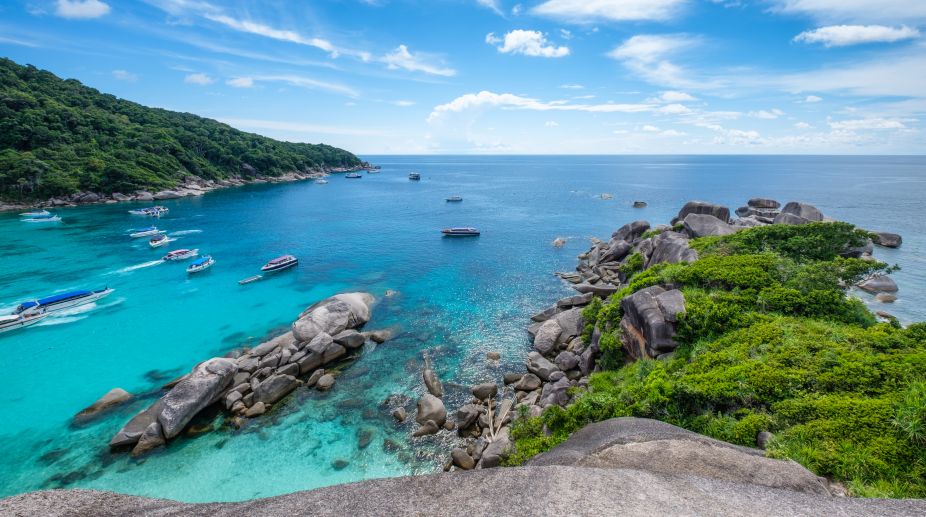PM to inaugurate Port Blair airport’s new terminal on Tuesday
The inauguration of the New Integrated Terminal Building, built at a cost of around Rs 710 crore, will play a key role in boosting connectivity of the island UT.

Representational Image (Photo Credits: Getty Images)
Beckoning tourists with their intricate mineral formations amid the tropical wilderness of the Baratang island, the age-old limestone caves here testify to the variety of the Andaman archipelago, otherwise famed for its pristine beaches, fascinating coral reef, historical monuments and adventure sports.
Baratang lies around 100 kilometres north of Port Blair, the capital, and around 1,300 kilometers from the Indian mainland.
A part of the North and Middle Andaman administrative district, Baratang too has beautiful beaches, mangrove creeks and mud-volcanoes — but the limestone caves could be rated as the most awe-inspiring of the island’s offerings.
Advertisement
While the massive sedimentary limestone formations inside the dark, damp caves enchant both researchers and ordinary tourists, the journey to the spot adds to the enjoyment.
It includes a speedboat ride on a beautiful sea channel followed by a one-and-a-half kilometre trek through the mesmerising tropical forest.
Visitors arriving from Port Blair also get to pass through the famed Jarawa Tribal Reserve. The vehicles, however, are only allowed to pass through the region in a convoy, at specific intervals — and there is strictly no stopping or clicking of pictures.
Along the way, you may catch the glimpse of one or two Jarawa hunters, scantily clad in red cloths or, if lucky, even see a whole group of children passing through the forest.
The forest leads to the Baratang jetty where the visitors hop on to speed boats and enjoy a breathtaking ride through a dense mangrove forest. The boat enters a narrower creek with a canopy of mangrove trees above. The area is dark even in the afternoon as light barely penetrates the thick leaves of Hental, Sundari, Buttonwood and black mangrove trees.
The boatmen repeatedly caution the visitors not to put their hand into the water as the creeks are infested with salt-water crocodiles.
The speed boats drop people to the Nayadera Jetty. One has to then trek through the uneven hilly slopes amid the tropical forest to reach one of the limestone caves.
The cave, conical in shape, has a relatively broad entrance but gets increasingly narrower and darker inside. Looking up at the roof, one sees just two small holes that provide light and oxygen to the entire cave.
The cave is said to have surfaced from the bottom of the sea after an earthquake. The guides point out certain limestone rocks that are chemically reacting with carbon dioxide to form various curious designs on the roof and floor of the cave.
The cave floor is particularly damp and slippery. In a relatively wider part inside the cave, stalactites hang from the ceiling like chandeliers while stalagmite formations on the floor take shapes like a flower bouquet or elephant’s head. At some places, the overhead and ground formations have met to form pillars.
After a certain point, the path inside the cave has been barricaded to restrict visitors from venturing further as the rocks ahead are relatively unstable.
Right outside the cave, there a number of small shops where locals sell mangoes sprinkled with rock salt and coconut water — just what you need after the fairly strenuous trek.
(Milinda Ghosh Roy visited the Andaman and Nicobar Islands at the invitation of the Press Information Bureau. He can be contacted at milinda.r@ians.in)
Advertisement